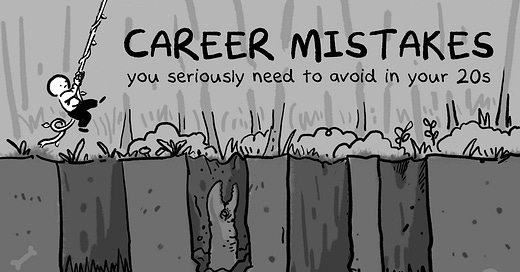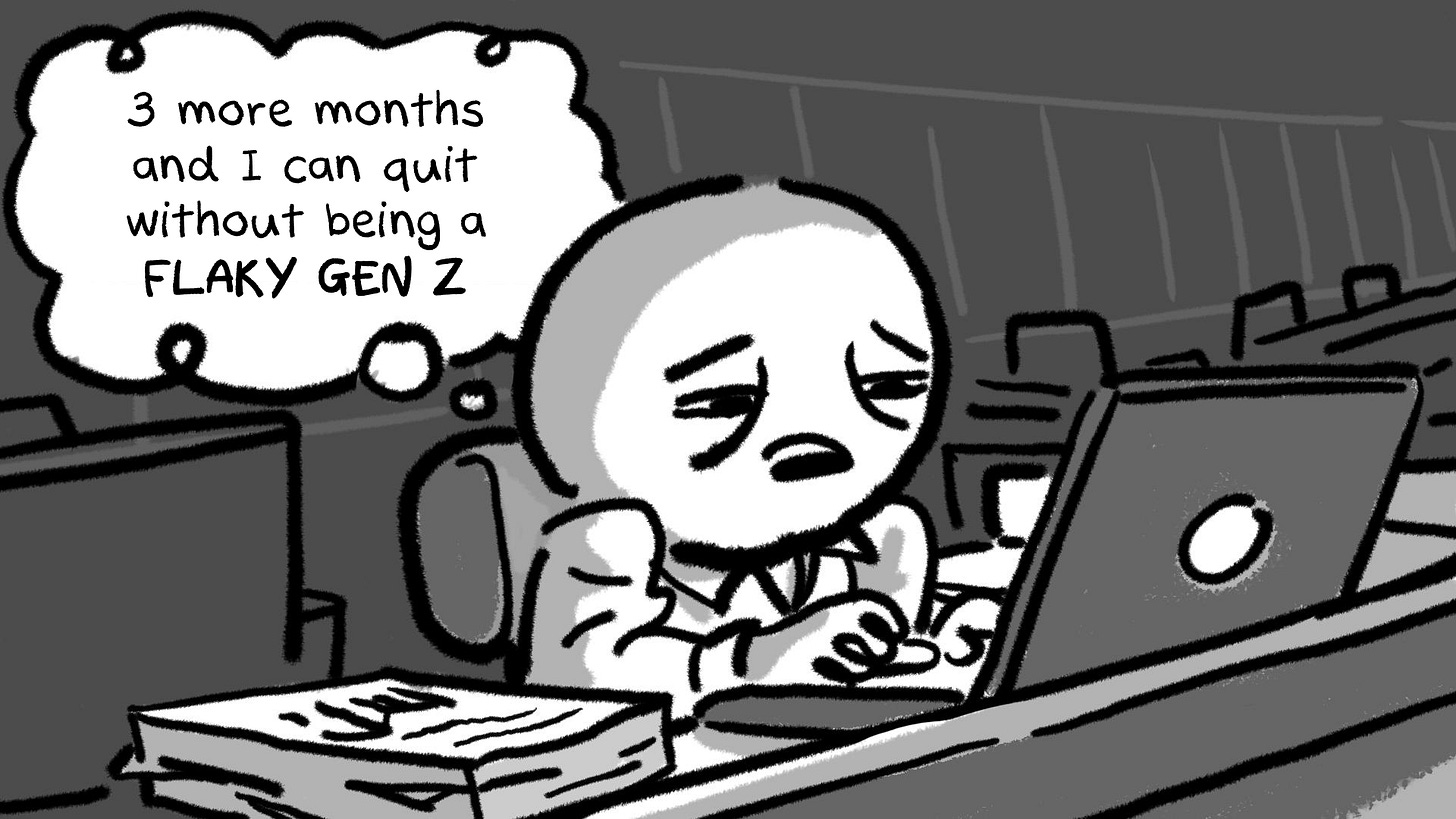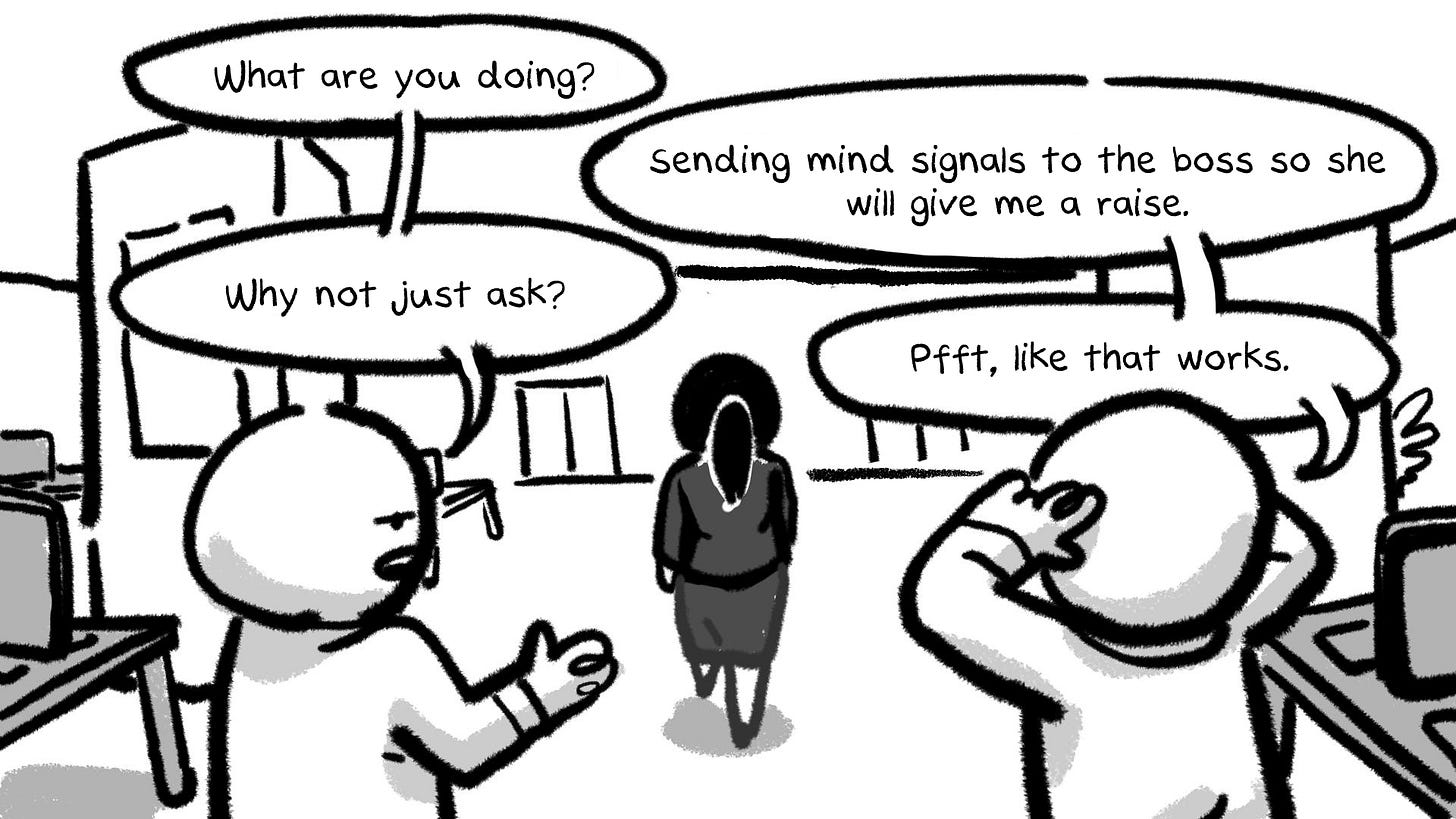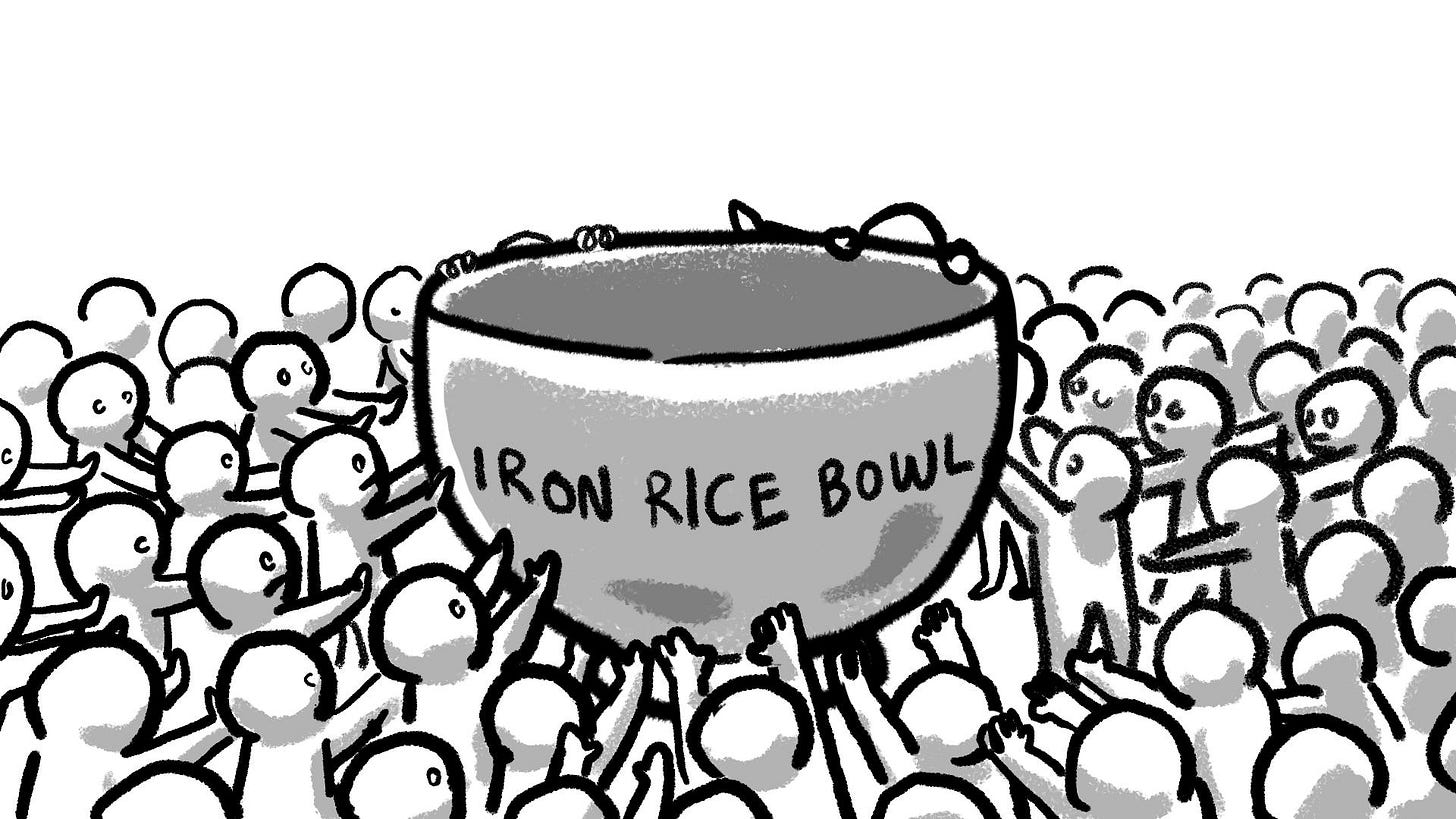DISCLAIMER: If this article looks familiar, it’s because we first published it on 18 Nov 2019. We’ve made some major edits to ensure it's still relevant in 2024.
When we first entered the workforce in the early 2010s, there weren't a lot of Singaporean sites offering career advice.
That’s why after ten years in the workforce, we thought we’d look back and write something for our former selves.
We’ll be the first to admit it. Some of these lessons were not easy to learn and even harder to accept. We would have scorned some of them when we were younger, more prideful versions of ourselves.
But as the saying goes, when the student is ready, the teacher appears.
We spent close to a decade being clueless salarymen.
Don’t repeat our mistakes.
Mistake 1: Being afraid to leave a toxic job because you “haven’t stayed long enough”
You joined a company only to find out within a week you were sold a false dream. The boss doesn’t keep his word. Company culture is terrible. Pay is miserable, and everyone works long hours. There’s almost no room for progression.
Under these circumstances, you’d think anyone might quit.
But when you’re a fresh twenty-something, there’s a real fear that leaving a job within a year, or two years, “will look terrible on your resume”.
Here’s the thing: it’s okay to leave. There are actually many valid reasons why people leave jobs. Family reasons. Health reasons. Maybe the job just wasn’t a good fit.
If your future employer can’t recognise this and writes you off as flaky and incapable, then they’re probably not someone you want to work for anyway.
(That said, please don’t leave your job repeatedly, because yes, leaving jobs multiple times after a short time will raise some serious red flags.)
Further reading:
Mistake 2: Not negotiating or asking for a pay increment or other benefits
Too many young people just accept the salary that they are offered without negotiating. If you want a higher salary, or think you deserve more, you gotta ask for it.
Because few bosses will ever proactively offer you one.
As a start, here’s how you can ask for a pay raise:
Have a desired salary in mind
Go approach your boss, and tell them about your desired salary
Ask them what you must do to deserve said salary, and set goals based on that
Reach goals
See if your boss fulfils their promise
Further reading:
Mistake 3: Giving up early and becoming a gig worker
EDIT: We got a lot of flak when we first wrote this in 2019, but we’ll say it again. Income for gig workers has been steadily on the decline since then.
We firmly believe the only people who have any business being a long-term, full-time gig worker (e.g. private hire driver, food delivery rider) could be:
People using it to supplement their income while they work out their career path (in-between jobs, or while you try to start a business)
People who have zero intention to re-enter the workforce
People who have no other choice
Look, being a gig worker is honest living no doubt, but there are better options to pursue, especially for a young person. We know gig workers who have said this themselves.
We get that the pay can be pretty attractive compared to some entry-level jobs, but if you’re fresh out of school, you should reconsider being a gig worker for the next 5 years.
In a few words, here’s why:
No job progression
No difference between someone who has been driving for 3 years and 20 years; your experience doesn’t matter
Job might not exist in a decade or two due to self-driving cars/drones
Hard to build professional relationships
Further reading/watching:
Mistake 4: Only considering MNCs to work at
MNCs (multinational corporation) are decent places to work at, no doubt.
For starters, they tend to have more prestige, job security (iron rice bowl!), higher bonuses and higher salaries than joining a startup or your typical Singaporean SME (small and medium-sized enterprise).
But it would be unwise to exclusively consider MNCs as places to work at.
For starters, competition for promotion (and a select few roles) can be intense. And despite what all the recruitment campaigns might say, these organisations can have a pretty structured promotion/increment system.
That means even if you’re expecting to soar quickly through the ranks in a few years or overhaul tried-and-tested systems, you might want to keep your expectations in check.
Unless, of course, you’re some kind of management trainee (or scholar, if you work in the public sector).
Conversely, SMEs and startups might not pay as well, but don’t write them off so soon!
If you find the right one, you might have more opportunities to learn and progress, due to fewer competition. Sometimes being a big fish in a small pond is a good thing. In smaller environments, you might also have closer access to management; this can be useful if you want to start your own business one day.
That said, there are many SMEs that dance with bad culture, low pay, little to no benefits, zero progression and maybe even some nepotism. It goes without saying you should flee on sight when encountering these.
At the end of the day, know this: whether or not you’re in a MNC, SME or startup won’t stop you from success.
But limiting beliefs and defeatist attitudes will.
Further reading:
Mistake 5: Expecting work-life balance and high pay to go together
Wanting work-life balance is completely fine. Wanting a high salary is okay too.
But put those two together, and suddenly things are not that simple, especially if you are a noob in the workforce.
Why? Because whether or not your boss gives you work-life balance or not tends to depend on the value you bring to the company. Most people don’t start off as great workers, so you need to prove yourself worthy before you demand either.
Make no mistake, work-life balance is not a right that people magically confer upon you when you are new with zero experience.
It is a privilege you earn. Some might earn that privilege in a couple of months. Some might take years, and it's a privilege some might never have.
(That said, a small but increasing number of companies are beginning to see the benefits of work-life balance and its effect on employee productivity. If you are lucky enough to work in such a company that provides both decent working hours and attractive salary, please hang on dearly to your job.)
TL;DR: Be prepared to work harder and smarter than your peers if you want more attractive remuneration.
Further reading:
Mistake 6: Thinking job security is still a thing
We’re not sure about you, but we think a job today is not what it used to be. Job security is no longer guaranteed for decades. The fat, one-year bonuses during our parents era are now an exception, not the rule.
If your job pays you enough, then great. But if having a full-time job no longer pays you enough to guarantee a future, you have to take matters into your own hands.
If the post-COVID layoffs by big tech firms are any indication, the long-held belief of MNCs being a ‘stable job’ are being challenged. Even in the public service — perceived as the last bastion of an iron rice bowl — many positions are transiting to contract roles without promise for long-term renewal.
In today’s era, we firmly believe in side hustling to supplement your income if your job is not paying you enough. If you’re paid to work from 9–6pm, don’t spend the best years of your life working 9–2am. If you’re going to work that hard, we’d rather you go back home at 6pm and work for yourself.
Learn a new skill. Practise what you learnt at work on a personal project. Pick up a new qualification. Build your portfolio. And then get paid for it.
If you are willing to work the hours outside work while people are catching a movie or watching Netflix, it will put you far ahead of your peers.
But you gotta be working for yourself, not your boss.
Stay woke, salaryman.
If you’ve read this far, please consider subscribing to our email newsletter (yes, this Substack). We cannot offer you much but we can offer this:
We have newsletter-exclusive articles that won’t be posted anywhere else. We created these articles for people who want to go deeper into complex issues than the shorter-form content we typically have.
If you don’t have social media or don’t follow our Telegram channel, you can still get updates to all our content emailed directly to your inbox to read at your own time.
We promise not to spam your inbox (but Substack might, so update your notification settings).












You don’t really need to tell the generation with the lowest average tenure in a position to leave when they don’t like the job 🙃
I left my first job 2.5 months in because (1) it was a very toxic environment and (2) I felt I couldn't learn anything from the job other than how to play the political game.
It took a lot out of me to decide to resigned, and I literally teared on the spot when my boss scolded me for resigning (on hindsight it showed my decision to resign was correct).
10 years on, it's still one of the most important and best decision I made in my career 🙏🙏